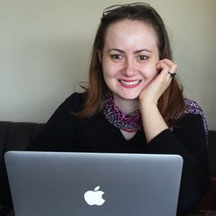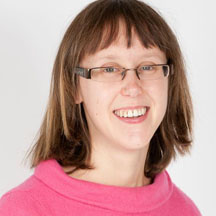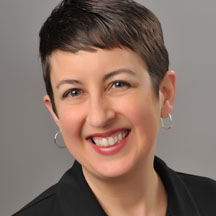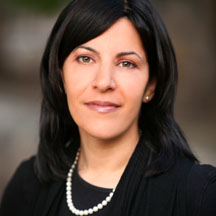
eing an international writer can be tricky. Freelancer problems like getting paid on time, proving your writing capabilities, meeting clients on a mutually optimal time, and keeping up with trends become a bit more problematic when you are in a different country or even on a different continent than your clients.
But this post isn’t about the challenges. It’s about how to become a successful international writer via tips from writers who have overcome these issues and got that seemingly elusive first break. (Most of the tips can also apply to all writers, however.)
I’m an international writer myself. I’m currently based in Turkey, and I have mostly worked with international clients. I’ve been published on The Washington Post, Be a Freelance Blogger, Brazen Blog, and WOW! Women on Writing, among many others. I have three screenplays meant for Hollywood studios, and one was even a semi-finalist in a screenwriting competition. While there is still a long way for me to go, I’m climbing that high ladder with all I’ve got.

“Even though my writing portfolio until then consisted of essays and screenplays, I landed a business writing gig using my bachelor’s degree.”
(Photo: Pinar Tarhan)
My first writing assignments came in the most cliché way possible: via a free job board. Even though my writing portfolio until then consisted of essays and screenplays, I landed a business writing gig using my bachelor’s degree.
It’s true that you don’t need a degree to find work as a freelance writer. However, it doesn’t hurt to showcase your education when it is directly related to a particular job. And if you don’t have any clips in the niche, it definitely goes a long way.
I got my next gig through my love and abundant knowledge of music. Afterward, I landed my first paying guest post on the Make a Living Writing blog by finding a slant about freelancing that was unique to me. Then I kept pitching, getting rejected, but also getting published.
Now that you know how I got my start, let’s move on to some more international freelance writers:

“I started writing guest posts and noticed that people enjoyed my ideas. That’s how I had the idea that maybe I could submit my writing to other places.”
(Photo: Olga Mecking)
My good friend Olga Mecking is Polish, married to a German, and lives in The Netherlands. And she primarily writes in English. She has been published on The Washington Post, NYP, Ravishly, Mamalode, Babble, and Matador, among others. She basically created her own break. First, she started her own blog, The European Mama, and kept writing and pitching about being an expat mom. She also writes about technology, traveling, and whatever else inspires her.
“I started out slowly. First, I had a blog about being an expat mother in the Netherlands. Then, I noticed I was having readers, and I was added to blogger groups. I started writing guest posts and noticed that people enjoyed my ideas. That’s how I had the idea that maybe I could submit my writing to other places. My first ones were unpaid: I syndicated my blog posts on HuffPost and BlogHer (now SheKnows). And after a while, it hit me that maybe I could start being paid for my writing? At that time, I found myself in other writers’ groups, and they shared many great tips and editors’ contacts. Since I’m someone who has more ideas than I know what to do with, I started pitching publications. Basically, it all came down to good ideas, good connections, hard work, and lots of luck.”

“If you pitched one editor at a magazine who said no, but a new editor steps in, pitch the new editor with your idea.”
(Photo: Bernadette Geyer)
Bernadette Geyer is a writer, editor, and translator living in Germany. When asked about her first big break, she says that it wasn’t really a first big break, but rather “a series of many little breaks that, when I looked back, are what mattered.” Geyer recommends being organized and dedicated. She knows there will be days when you won’t want to work, but you still have to. She also advises having a plan for topics you want to focus on as well as publications and companies you want to target. According to Geyer, persistence is another key element to succeeding as an international writer:
“If you are pitching to magazines, don’t just give up if you don’t hear from the editor you pitched. If you don’t hear back in a week or two, send an email to follow up (...unless their guidelines state otherwise). Also, editors change. If you pitched one editor at a magazine who said no, but a new editor steps in, pitch the new editor with your idea. After pitching, following up, re-pitching, following up, pitching the new editor, and following up—over the course of more than 1.5 years!—I finally landed a contract for a feature article in a major food magazine I knew was the perfect place for my story idea.”

“You don’t need to meet one hundred writing partners; one excellent partner is invaluable.”
(Photo: Gila Green)
Gila Green is based in Israel and writing is her family’s second income. This mother of five has a new YA novel called No Way Home (from Simon Pulse, an imprint of Simon & Schuster) available for preorder on Amazon. She believes being an international writer has certain advantages, such as focusing on writing instead of trying to attend all available workshops and conferences. Another advantage is the different sense of place that can benefit you as a fiction writer as well as having a fresh voice. She advises using the Internet to its full capacity to network.
“Don’t assume you are the ONLY one writing in English in your area. You don’t need to meet one hundred writing partners; one excellent partner is invaluable. Ask around. You’d be surprised. I met a writer at a seminar in Montreal who told me about another Canadian writer who ended up living only thirty minutes away from me in Israel.”

“You have to keep in mind that the audience is different for European pubs, so your story angle will have to appeal to and be relevant to them.”
(Photo: Suchi Rudra)
Suchi Rudra is a digital nomad currently on the road. She is an established freelance writer and the author of the book, Travel More, Work Less, and blogs about traveling. While she loves life on the road, she recommends sorting out your online work before starting your journey. The book consists of nine chapters, beginning with the first steps required to take the leap into freelancing while traveling, and includes helpful sections on accommodations, finding work online, cheap transport, and more. Because of the challenges of being a freelancer on the move, she advises meeting fellow traveling freelancers and discussing these. She doesn’t just rely on travel stories but writes in other niches (sustainable building/design, education, entrepreneurship) as well. She notes that working with European publications can be different than working with American ones.
“I have noticed that a few of my British editors prefer a Skype call instead of going back and forth over email. Also, some British editors seem to be open to phone calls as a first contact if you have questions about guidelines, what they are looking for, etc. Remember to stick to British spelling when writing for a British publication, and often other European pubs will require that, too. And you have to keep in mind that the audience is different for European pubs, so your story angle will have to appeal to and be relevant to them.”
*
Remember that it all comes down to being persistent, professional, and diverse. You should keep in mind all of your passions and your education when mining for story ideas. Waiting in a state of panic for acceptances and your break might be tempting, but it is better to follow-up, brainstorm, and connect with other writers instead. And don’t forget, you can always create some of your own breaks in the digital age. Good luck, and may inspiration be with you!
***
Pinar’s Useful Online Resources for International Freelance Writers
While the information found on these websites work for all writers intent on applying the advice, they are also immensely valuable for international writers. All of these are websites are ones I check regularly.
The Write Life was founded by Alexis Grant. It features articles by fellow freelance writers on all aspects of writing life, including contests, grants, markets, pitching advice, fiction, and beyond. The Write Life is a paying market.
Beyond Your Blog is run by writer and blogger Susan Maccarelli. The blog features many practical articles on how to get published, submission info for paid and unpaid markets, interviews with editors on how to break into their magazines, and beyond. I first heard about Washington Post’s Solo-ish blog on Beyond Your Blog, and now I have a Solo-ish byline. This is not a resource you would want to miss out on. BYB is also a paying market. You can check out the guidelines here.
Make a Living Writing. I’ve been learning from Carol Tice for years. Her blog is dedicated to non-fiction. You’ll find a wealth of information ranging from how to increase your rates to how to get better clients, from how to use networking for your writing career to how to turn free guest posts into lucrative opportunities. In addition to many great free resources, she also runs the paid membership group The Freelance Writer’s Den, where there’re plenty of trainings, a helpful forum, and a no-junk job board. You can also check out her e-books before committing to a monthly membership for the den. She accepts guest posts, but she is only looking for great stuff.
Writers in Charge. I had to mention successful Nigerian writer Bamidele Onibalusi and his website Writers in Charge. In addition to solid advice on how writers can make a good living, he also features publications that accept pitches from freelance writers, how much they pay, and stories of other successful writers. He also sometimes takes on challenges, like starting a blog from scratch and turning it into a website, which brings in clients and leads to 4-figures in freelance writing income in 3 - 6 months, to see if his advice works. It does.
Funds for Writers. C. Hope Clark’s newsletter features information contests, grants, articles—both written by her and other writers—on the writing life. It focuses on both fiction and non-fiction. It’s a paying market.
WOW! Women On Writing. Obvious, but I had to mention it. WOW! publishes articles on all aspects of the writing life, hosts many workshops, and runs a quarterly writing contest for flash fiction. The Muffin is WOW!’s blog. I’ve numerous articles bookmarked that I return to again and again.
The International Freelancer is successful international writer Mridu Khullar Relph’s brainchild. Her bylines include The New York Times, TIME, CNN, and Marie Claire, among others. The blog offers two valuable free e-books (21 Query Letters That Sold and Secrets of Six-Figure Freelancing) in addition to useful articles. She has also created several courses for writers.
Bang2Write is run by screenwriter, author, and novelist Lucy V Hay. The blog offers wisdom not only on how to write a great novel or a screenplay, but also how to sell them, including getting read, submitting to contests, and writing pitches. The advice is comprehensive, succinct, practical, and blunt. She accepts guest posts. You can also hire Lucy as a script reader. If you can’t or don’t want to shed money on script coverage, the terrific free resources will keep you learning for some time.
Pinar Tarhan is a freelance writer, blogger, and screenwriter for hire. She believes in fun, variety and big dreams, and she helps fellow writers with all three through her blog Addicted to Writing.
-----
Enjoyed this article? Check out these related articles on WOW!:
An Expat’s Guide to a Portable Career
Something to Write Home About: Life as an Expat Freelance Writer
Interview with International Freelance Journalist Mridu Khullar Relph
Thinking Outside the Book: Portable Careers in Japan and Beyond